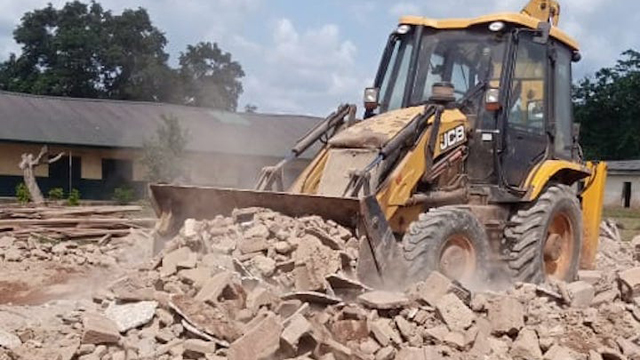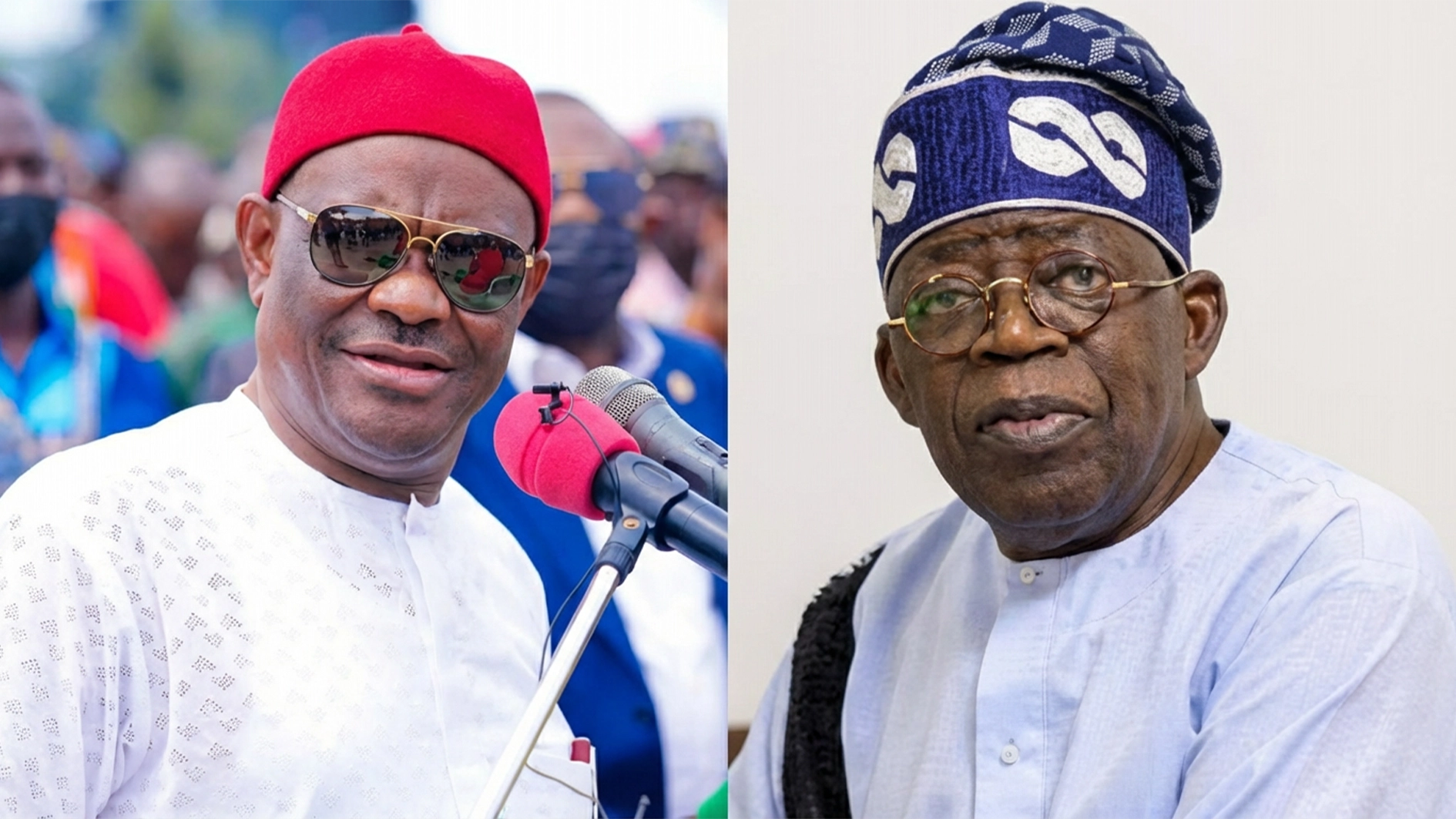
It was in the news recently that residents of Oworonshoki area in Lagos State on Wednesday August 2, 2023, protested the ongoing demolition in their area by the Lagos State Task Force which has seen many residents lose their belongings and homes, left several women and children homeless, and forced many to seek shelter in churches and uncompleted buildings in other areas. During the protest which was held at the state House of Assembly complex in Alausa, Ikeja, protesters were seen with placards with inscriptions such as “Say no to land grabbers and wrong demolition”, “Please help us in Oworonshoki “ and “We plead to the government to come to our rescue.”
Even though the Lagos State House of Assembly, has a while ago, in a face saving effort ordered the State Environmental and Special Offences Enforcement Unit known as Taskforce to stop the demolition, and in its place, set up a five-member ad-hoc committee to investigate the matter and report to the House in two weeks, there are, however, reasons that rings apprehension as to the frequency of this potentially deadly ‘culture’ of demolition/forced eviction in the state and qualifies as a reality to worry about, the choice of forced eviction by the state government in its efforts to engineer development of the state.
Aside from lacking in conventional approaches that infuse human rights principles of participation, accountability, transparency and non-discrimination towards the attainment of equity and justice in such ‘developmental initiative’, most troubling is the awareness that the present demolition is coming barely two years after a similar thoughtless demolition/forced eviction in July 2021, at the same Oworonshoki was reportedly carried out by the same state government.
Expressly, this piece does not think that what the state government is doing presently in the name of urban renewal/upgrade or regeneration is the best way of turning ‘Slum to Neighborhood’.
Tragically ‘interesting’ is the awareness that the state has chronically become reputed for achieving urban related upgrades, renewal and developmental programmes more from a reactionary perspective as against proactive design of effective policies anchored on international best practices.
Take as an illustration, demolition/forced eviction gained entrance into the state leadership lexicon in July 1990 when Raji Rasaki in his capacity as Military Governor of Lagos State for yet to be identified reasons destroyed Maroko. Over 300,000 people that inhabited Maroko then were reportedly affected.
Going by reports, Maroko was a sub-city within Lagos. It was peaceful and very popular. The places now called Oniru Royal Estate; some parts of Victoria Island and Lekki Phase 1, were formerly known as Maroko and it was inhabited by mainly low income earners. Over 300,000 people inhabited Maroko then. Maroko prided itself with over 150 streets and houses owned by ten thousand landlords. The people were happy people.
Nine years after the Maroko experience, democracy came on board. At each electioneering, intending governors present baskets of manifestos with the promise to make Lagos a more human-friendly, livable state as the loudest. But contrary to that expectation, documented experience reveals that between 2003 and 2020, demolition/forced evictions of citizens without alternative accommodation has characterized every administration in the state.
Beginning with- Senator Ahmed Bola Tinubu (May 1999 to 2007, now President of the Federal Republic of Nigeria to Babatunde Raji Fashola (SAN), 2007 to 2015. From Akinwunmi Ambode (2015 to 2019) and presently Mr. Babajide Sanwolu, there was no shift in paradigm as they all stuck to the practice.
The most painful aspect of the narrative is that to achieve this heinous objective, the government has a way of tagging the targeted community as a highly populated urban residential area consisting mostly of closely packed, decrepit housing units in a situation of deteriorated or incomplete infrastructure, inhabited primarily by impoverished persons.
Under the above description/excuse, the following Lagos communities has between 2003 and 2015 partly or wholly fallen under the bulldozers of the Lagos state Government; Makoko community, Yaba, Ijora East and Ijora Badiya, PURA-NPA Bar Beach, Ikota Housing Estate, Ogudu Ori-Oke, Mosafejo in Oshodi, Agric-Owutu communities, AJelogo-Mile 12, and some communities along Mile 2 Okokomaiko to mention but a few.
As if that was not enough trouble for the poor Lagosians, in 2016, the governor of the state of Lagos, Akinwunmi Ambode, vowed to evacuate all waterfront shantytowns — a population totaling about 300,000, according to the Nigerian Slum/Informal Settlement Association.
A few months later, 30,000 people lost their homes when one of the slums, Otodo Gbame, a poor fishing community close to the up market southeastern district of Lekki, was razed. During the reported demolition of Makoko community on the 17th July, 2012, the British Broadcasting Corporation (BBC) stated that a letter from the Lagos state government was served on residents the previous week, giving them 72 hours to vacate their properties.
The Lagos state authorities further noted in that Letter that the illegal constructions in Makoko constituted an “environmental nuisance, security risk and an impediment to the economic and gainful utilisation of the waterfront” and undermined the “megacity status” of Lagos.
Adding to the woes of the evictees is the government’s ‘love’ for disobeying court directives and non fulfillment of their promises to resettle those evicted.
To be continued tomorrow
Utomi is the Programme Coordinator (Media and Policy), Social and Economic Justice Advocacy (SEJA), Lagos. He could be reached via; [email protected] /08032725374






